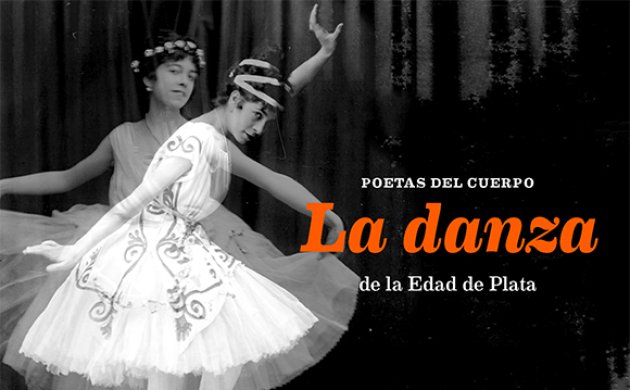Porter parece usar el silencio como la base encima de la cual se añaden sus instrumentos. O sea, es como si oyeras la ausencia en sus canciones, y lo que te llega como oyente parece venir de lejos, o incluso de otra dimensión. A sus canciones les da un elemento extraterrestre y incluso excéntrico, como si hubieran elegido montar su concierto en la sala al lado, y hayan obligado a la audiencia a presenciarlo a través de la pared. Por así decirlo, es la coexistencia simultanea de presencia y ausencia, la una implícita en la otra.
Me recuerda un poco de Spoon, quienes también usan el silencio como una tabula rasa sobre la cual imponer sus sonidos. Pero a diferencia de Spoon, quienes contrastan este silencio con la voz carismática de Britt Daniel, Porter amplifica este sentido de abstracción extraterrestre, de estar contigo pero a la vez fijado en lo otro, tanto con sus elecciones sonoras como el cantante.
El cantante de Porter, David Velasco, tiene una voz monótona y llana, casi robótica, que logra transmitir su compromiso con lo que canta a la vez de cierto desapego de ello. Si un día David Duchovny de ‘Expediente X’ eligiera cantar en español, no sonaría tan distinto, quizás. El otro contraste vocal obvio, al menos para mí, es con Karin Dreijer de The Knife, quien claramente usa la manipulación artificial para apelar a lo extraño. Sin embargo, lo gracioso es que Velasco logra un efecto parecido sin el uso de tecnología.
Mientras tanto, los sintetizadores también refuerzan el sentido del robótico de Porter, apelando a la ciencia ficción de los años 80. En el estribillo especialmente, suenan casi como láseres, disparando en medio de una batalla galáctica.
Por cierto, debería contrastar tanto Porter como Spoon, bandas que parecen utilizar el silencio y hacerte fijar en ello como punto de contraste entre el sonido y su ausencia, con bandas quienes no lo hace, por ejemplo Los Piratas. En la gran mayoría de las canciones de Los Piratas, la presencia lo es todo, como lo es para casi todos los grupos. Realmente, hay pocos quienes usan el silencio como parte del lienzo sonoro.
Además, me doy cuenta de que este uso del silencio es bastante oriental, incluso zen. Me recuerda de un libro de filosofía japonesa que leí el ano pasado, ‘La Plenitud del Vacío’ de Yasunari Kitaura, que incluía ejemplos de pinturas de monjes japoneses, donde el espacio vacío ocupa la mayoría del lienzo. Se podría decir que hay un paralelo musical con Porter, aunque claro, los objetivos de Porter y los de los monjes se diferenciarán mucho. Al final, me parece que Porter sigue queriendo entretenerte, y lo hacen muy bien, mientras los monjes no. Para concluir, ¿me pregunto si Porter es consciente del efecto que crean sus canciones, y cuánto de ello es a propósito, o si les viene naturalmente?
--
Porter seem to use silence as the base on top of which they add their instruments. To put this another way, it's like you hear the absence in their songs, and what comes to you arrives from far away, or even another dimension. This adds an extraterrestrial or even eccentric element to their songs, as though they'd chosen to set up their concert in the room next door, and obliged the audience to listen through the wall. In a sense, it's the simultaneous coexistence of presence and absence, the one implicit in the other.
This reminds me a little of Spoon, who also use silence as the tabula rasa onto which they impose their sound. But unlike Spoon, who contrast this silence with the charismatic voice of Britt Daniel, Porter amplifies their sense of extraterrestrial abstraction, of being with you but focused on what's other, both in their sonic choices and the singer.
Porter's singer, David Velasco, has a flat, monotonous and even robotic voice, that manages to transmit his commitment with what he's singing alongside a certain detachment from it. If one day David Duchovny from 'The X-Files' chose to sing in Spanish, it wouldn't sound so different, maybe. The other obvious vocal contrast, at least for me, is with The Knife's Karin Dreijer, who clearly uses artificial manipulation to invoke what's strange. However, the funny thing is that Velasco manages a similar effect without the use of technology.
Meanwhile, the synths also reinforce the sense of the robotic in Porter, appealing to 1980s sci-fi. In the chorus especially, they sound almost like lasers, firing in the midst of a galactic battle.
By the way, I should contrast both Porter and Spoon, bands that use silence as a point of contrast between sound and its absence, with bands that don't do this, for example Los Piratas. In the great majority of Los Piratas' songs, presence is everything, like it is for the almost all bands. Really, there are few who use silence as part of the sonic canvass.
Also, I realise that this use of silence is pretty oriental, even zen. I'm reminded of a book of Japanese philosophy I read last year, 'The Fullness of The Void' by Yasunari Kitaura, which included examples of paintings by Japanese monks, where empty space occupies the majority of the canvass. You might say that there's a musical parallel with Porter, although clearly, the objectives of Porter and the monks would be quite different. In the end, it seems to me that Porter still wishes to entertain you, and they do it very well, while the monks don't. To conclude, I wonder if Porter is conscious of the effect their song creates, and how much of it is intentional, or comes to them naturally?

